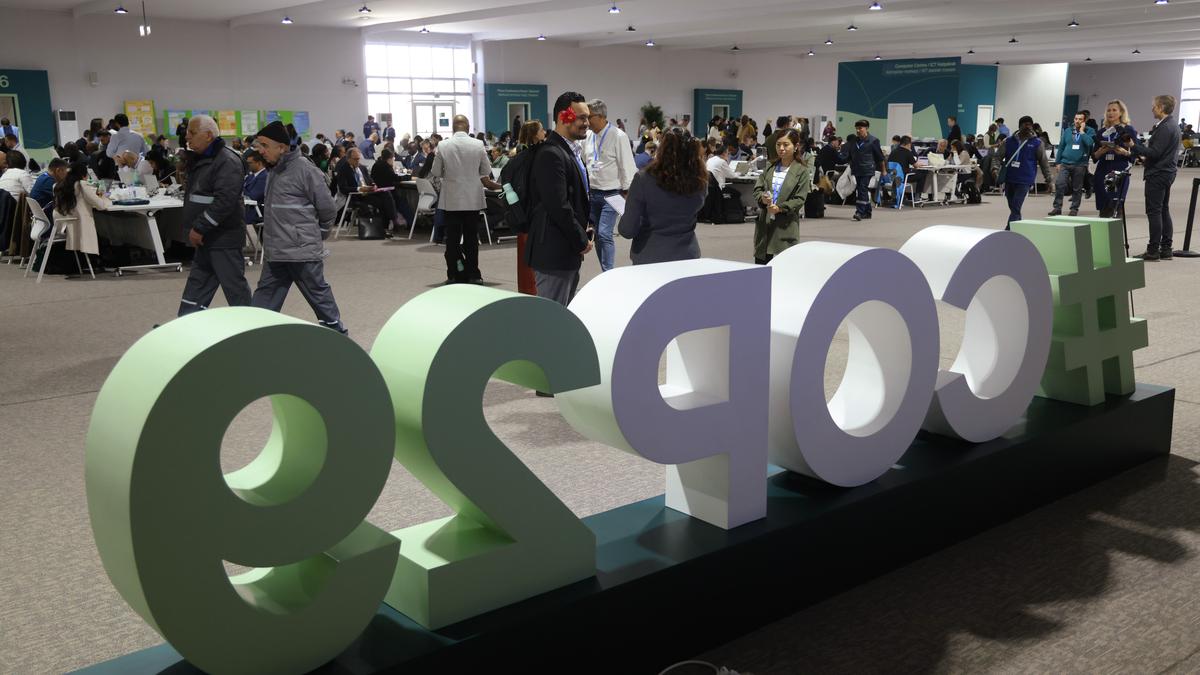
India has voiced its disapproval of “protectionist” measures that link trade barriers and carbon emissions, at the ongoing climate talks in Baku, Azerbaijan. A week before the UN summit began, China had petitioned the Presidency of the 29th Conference of Parties (COP 29) to include a discussion on “climate change-related unilateral restrictive trade measures” as part of the formal conference agenda. “A regime of unilateral trade measures on climate change,” India stated on Friday, “imposes the cost of the transition to low-carbon economies on developing and low-income countries.
.. [S]uch measures are discriminatory.

.. and detrimental to multi-lateral cooperation.
They violate principles of equity.” Related Stories Climate finance are not ‘investment goals’, says India at COP29 summit in Baku Global carbon dioxide emissions set to rise 0.8% over 2023, India’s contribution to go up 4.
6% Activists at COP29 feel stifled by rules and restrictions Global carbon market gets green signal at COP29 COP29: BASIC countries ask rich nations to honour commitments for climate finance rather than ‘diluting obligations’ COP29: India, other developing countries demand fair climate finance commitments ‘Unwieldy’ first draft at Baku sets 2030 goal of $5 trillion for climate action Against EU proposal China’s petition was put forward on behalf of a grouping of countries called BASIC, which includes Brazil, South Africa, India, and China. The petition is primarily directed against a European Union (EU) proposal called the Carbon Border Adjustment Mechanism (CBAM), which imposes a tax on products imported into the EU that do not conform to its carbon emission norms. CBAM is currently operating in a “transitional phase” but will come into full effect from January 1, 2026.
Circular evasions Neither the BASIC proposal nor India’s statement explicitly mention the CBAM; instead, they use the phrase “arbitrary and unjustifiable unilateral measures”. A person aware of India’s negotiating positions told The Hindu , on condition of anonymity, that this was because using the term ‘CBAM’ would be seen as directly targeting the EU, or a bloc of countries. This is generally considered to be against the spirit of UN-backed negotiations on climate conventions.
“CBAM is just one of the measures that uses climate and carbon emissions as a trade barrier,” said this person, “The problem is that when we raise this at climate fora, we are told this is a trade issue that must be raised at the WTO talks. At WTO talks, it is dismissed as a climate matter. So it is circular.
But this is an extremely important matter that needs to be raised and deliberated as frequently as possible.” Published - November 15, 2024 10:08 pm IST Copy link Email Facebook Twitter Telegram LinkedIn WhatsApp Reddit climate change (politics) / carbon emissions / United Nations (climate change) / India.














